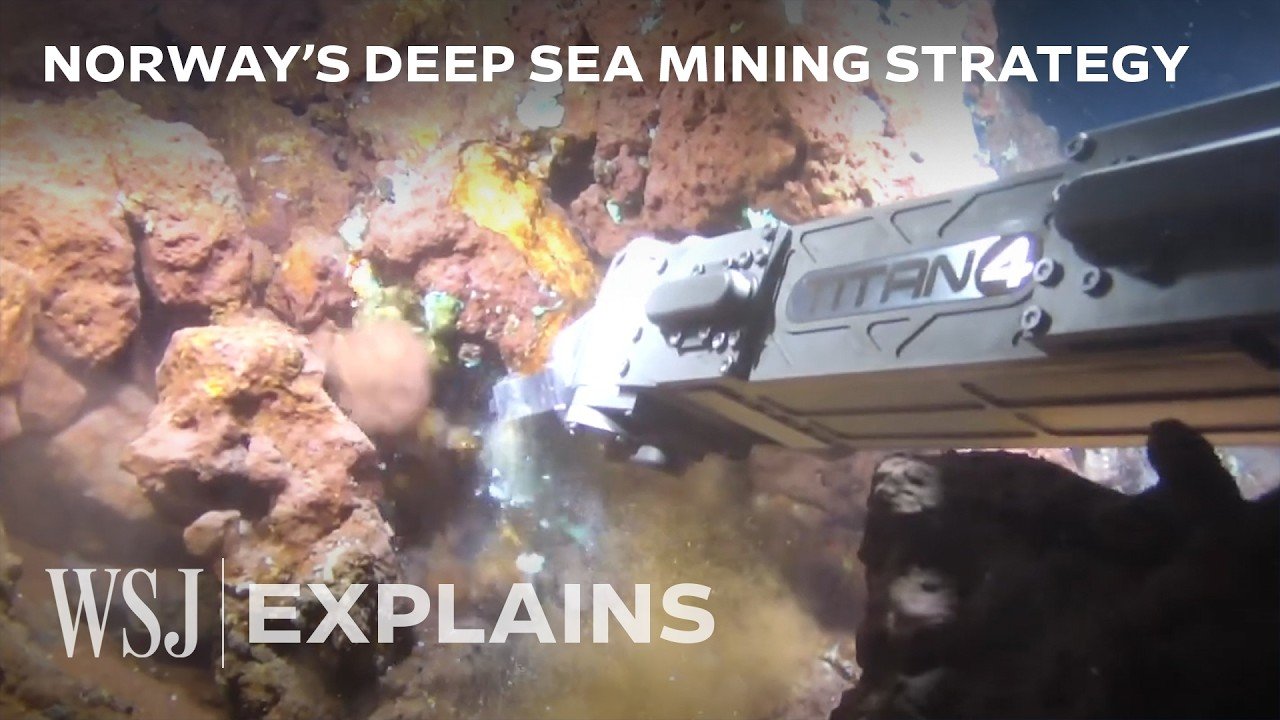- The seabed between Norway and Greenland contains valuable minerals essential for clean technologies, estimated to be worth $92 billion.
- Norway is at the forefront of exploring deep-sea mining to extract these resources, facing both technological challenges and environmental concerns.
- Deep-sea mining is controversial due to potential irreparable damage to the world’s largest ecosystem.
- Loke Marine Minerals and Norway are developing technology aimed at minimizing environmental impact, such as using robots for less invasive extraction.
- Norway’s approach includes extensive environmental assessments and requires parliamentary approval before mining can begin.
- The United States, with a large continental shelf, lags in deep-sea mining plans partly because it hasn’t ratified the UN Law of the Sea, limiting its ability to secure mining rights in international waters.
- China and other private entities are actively seeking contracts to mine in international waters, particularly in the Clarion-Clipperton Zone south of Hawaii, which is rich in nickel, cobalt, and manganese.
- Legislative hurdles, environmental concerns, and questions about profitability create significant uncertainty about the future of deep-sea mining.
- The potential environmental impacts and legislative complexities highlight the controversial nature of deep-sea mining despite its promise to support a greener future.
The Wall Street Journal is an American business and economic-focused international daily newspaper based in New York City. The Journal is published six days a week by Dow Jones & Company, a division of News Corp.
AllSides Media Bias Rating: Center
https://www.allsides.com/news-source/wall-street-journal-media-bias
Official website: https://www.wsj.com
Original video here.
This summary has been generated by AI.

Leave a Reply